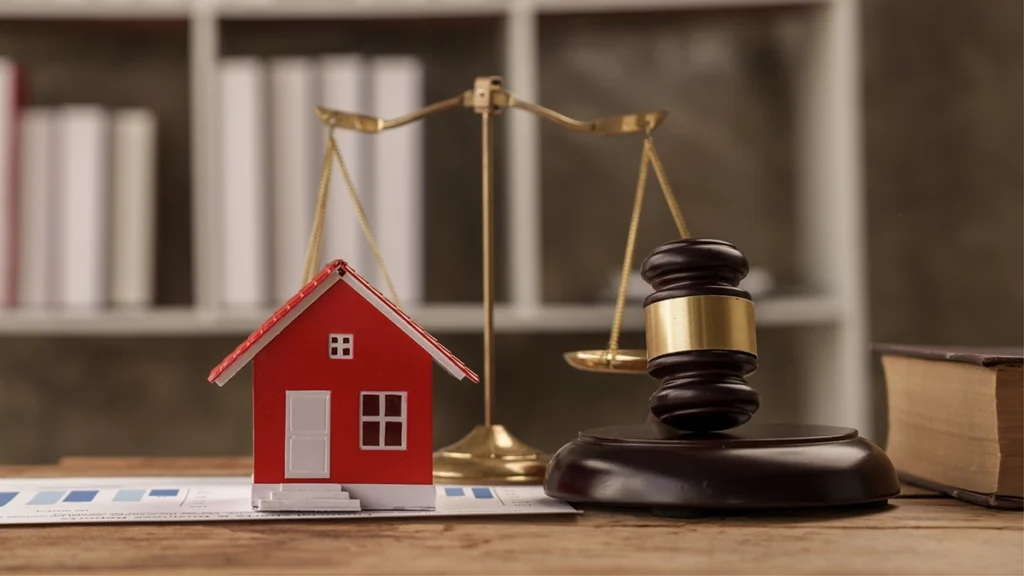So when the time comes to plan for what happens to that home, the question is not only legal, it is deeply human.Many homeowners wonder, Will my family have to go through probate? The word itself sounds heavy, and in truth, it often is. Probate is the court process that handles what happens to property after someone passes away. It can take months, involve lawyers and fees, and place a family’s most personal story into public records.
That is why more families are choosing a simple, proven way to protect what matters most. For those seeking peace of mind, a legal tool known as a Lady Bird Deed offers a gentle, practical solution.
What Is a Lady Bird Deed?
A Lady Bird Deed, formally called an Enhanced Life Estate Deed, is a way for a homeowner to pass their property directly to loved ones without sending it through probate court.
It works like a quiet promise written into the deed itself: the home will transfer automatically to the chosen beneficiary when the time comes, no court required.
Here is what makes it unique:
- During life: The homeowner keeps complete control. They can sell the home, refinance, or even change who inherits it without anyone’s permission.
- At death: The property passes directly to the beneficiary named in the deed. The transfer is automatic and private.
- The result: Families avoid court delays, save on costs, and keep their plans simple and secure.
It is different from a traditional life estate deed, which can restrict what an owner may do once signed. With a traditional version, the homeowner might need their beneficiary’s approval to sell or change anything.
A Lady Bird Deed removes those restrictions, allowing the owner to live freely while still preparing a smooth path for those who come next.
Why Homeowners Choose Lady Bird Deeds
Estate planning often begins with a simple, heartfelt question: What will happen to my home when I am gone? For homeowners who want clarity without complication, the Lady Bird Deed has become a trusted answer.
First, it avoids probate. Instead of waiting months for courts to act, your family can transfer the home immediately. No hearings, no delays, no additional legal fees.
Second, it preserves control. Other tools, such as traditional life estate deeds or certain types of trusts, may limit what you can do once signed. The Lady Bird Deed does not. You keep the keys, the decision-making power, and the right to change your mind.
Imagine a couple in their late sixties living in Florida. They want their daughter to inherit the home someday, but they also want to keep the freedom to sell if life takes a turn. They record a Lady Bird Deed, and from that day on, nothing changes in their daily lives.
They still own the home completely, can refinance or rent it if they wish, and when they pass away, the deed itself handles the transfer, automatically giving ownership to their daughter. There is no court paperwork, no waiting, no confusion. The home simply passes along, just as they intended.
A neighbor once said, “I just wanted my kids to have one less thing to worry about.” That simple wish captures why Lady Bird Deeds matter.
This brings the third benefit: it creates peace of mind. Knowing that your home will pass exactly as intended—quickly, privately, and without conflict—brings a sense of closure and comfort that a simple will cannot guarantee.
Lady Bird Deeds vs. Other Planning Tools
Lady Bird Deed vs. Will
A will must pass through probate before anything happens. That means time, cost, and court oversight. A Lady Bird Deed bypasses probate entirely and takes priority over any conflicting will for the property it covers.
Lady Bird Deed vs. Trust
A living trust can also avoid probate, but it comes with more paperwork and ongoing management. A Lady Bird Deed is simpler: one document, one recording, and no further maintenance.
Lady Bird Deed vs. Joint Ownership
Some homeowners try to avoid probate by adding a child’s name to their deed. But that can expose the home to risk, such as divorce settlements, creditors, or lawsuits involving that child. With a Lady Bird Deed, ownership stays entirely with the homeowner until death, keeping the property safe and under full control.
Where Lady Bird Deeds Are Recognized
Not every state allows this type of deed. As of today, Lady Bird Deeds are recognized only in Florida, Texas, Michigan, Vermont, West Virginia, and North Carolina.
In these states, they are a common and trusted estate planning tool. For homeowners elsewhere, other solutions such as a living trust or transfer-on-death deed may achieve similar goals. Because each state sets its own rules, it is always wise to confirm what applies where you live.
Planning Beyond Probate
A will tells the court what to do. A Lady Bird Deed tells the property itself. Once it is properly signed and recorded, it works on its own. That is the beauty of it: clarity without complication.
For many families, this simple document turns uncertainty into reassurance. It ensures that the stories tied to a home—the birthdays, the laughter, the years of work and care—can pass quietly and completely to those meant to carry them forward. Because protecting your home is more than paperwork—it is preserving the heart of your family’s story.
Frequently Asked Questions About Lady Bird Deeds
What states allow Lady Bird Deeds?
They are currently available in Florida, Texas, Michigan, Vermont, West Virginia, and North Carolina. Each state sets its own rules, so it is best to confirm the requirements where you live.
How does a Lady Bird Deed avoid probate?
Because the deed itself names a beneficiary, the property automatically transfers upon death. There is no need for court approval or probate proceedings.
Can I change my Lady Bird Deed later?
Yes. The homeowner can sell, refinance, or change beneficiaries at any time while alive, without anyone’s permission.
Benefits of a Lady Bird Deed at a Glance
- Avoids probate entirely
- Keeps the homeowner in full control during life
- Transfers the home automatically to heirs upon death
- Reduces legal costs and court delays
- Provides clarity and peace of mind
Key Takeaways
- A Lady Bird Deed lets your home bypass probate while keeping you in full control.
- The property transfers automatically to your chosen beneficiary when you pass away.
- It is valid only in Florida, Texas, Michigan, West Virginia, Vermont, and North Carolina.
- For many families, it is a simple, powerful way to protect both their home and their legacy.
Prefer a guided process?
If you are ready to protect your home and avoid probate, Lady Bird Deed Now prepares your deed to your state’s exact legal standards, coordinates notarization, and records it with the County Clerk of Court. Your plan will be secure, compliant, and complete, so your family’s future stays in the hands of those you love most.
Because in the end, protecting your home is protecting the story that began within its walls.



